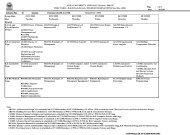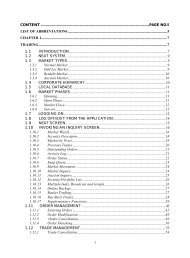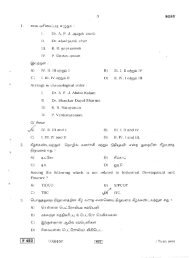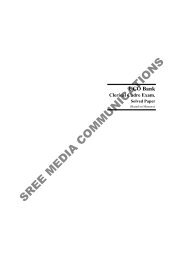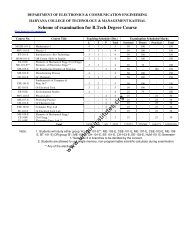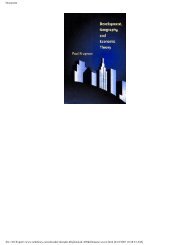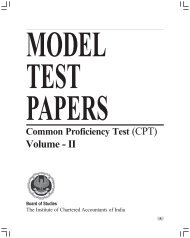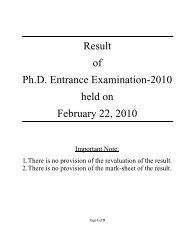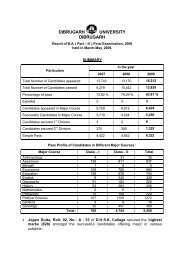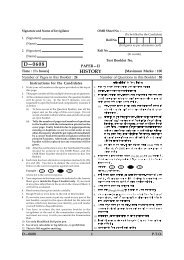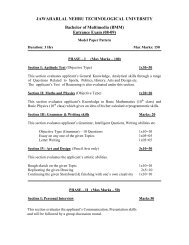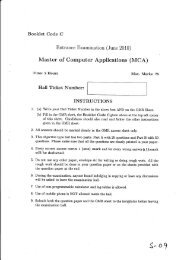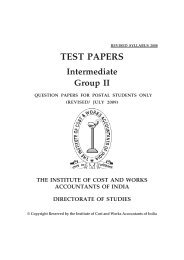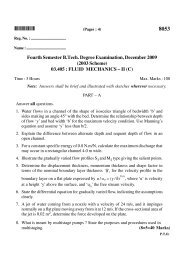UNIT – I Lesson 1 HRM – AN OVERVIEW Lesson Outline Nature of ...
UNIT – I Lesson 1 HRM – AN OVERVIEW Lesson Outline Nature of ...
UNIT – I Lesson 1 HRM – AN OVERVIEW Lesson Outline Nature of ...
You also want an ePaper? Increase the reach of your titles
YUMPU automatically turns print PDFs into web optimized ePapers that Google loves.
ME<strong>AN</strong>ING <strong>AN</strong>D DEFINITION<br />
<strong>UNIT</strong> V<br />
LESSON I<br />
INDUSTRIAL REALTIONS<br />
Industrial relations are concerned with the relationship between management and workers<br />
and the role <strong>of</strong> the regulatory mechanism in resolving any industrial dispute. A formal<br />
definition is “ concerned with the systems, rules, procedures used by unions and<br />
employers to determine the reward for effort and other conditions <strong>of</strong> employment, to<br />
protect the interest <strong>of</strong> the employed and their employers, and to regulate the ways in which<br />
employers treat their employees”.<br />
The international Labor organization (ILO) stated that “ industrial relations deal<br />
with either the relationships between the state and employer’s and worker’s organizations<br />
or the relations between the occupational organizational themselves”.<br />
The concept <strong>of</strong> industrial relations has been extended to denote the relations <strong>of</strong> the<br />
state with employers, workers and their organizations. The subject, therefore, includes<br />
individual relations and joint consultation between employers and work people at their<br />
work place; collective relations between employers and their organizations and trade<br />
unions and the part played by the state in regulating these relations.<br />
From the various definitions given above, we understand that:<br />
• Industrial relations is an outcome <strong>of</strong> employer-employee relationship in an<br />
organization<br />
• Industrial relations facilitates harmonious relationships in an organization by<br />
setting a framework for the management and the employees<br />
• Industrial relations is based on mutual compromise and adjustment, for the benefit<br />
<strong>of</strong> both the parties involved<br />
• The state and the legal system also have a role to play in the maintenance <strong>of</strong> a<br />
conflict- free industrial environment<br />
The different parties in the system with a well-defined role are the management., the<br />
employees and the unions.<br />
CONCEPT<br />
• Industrial relations are that aspect <strong>of</strong> management, which deals with the manpower<br />
<strong>of</strong>f the enterprise <strong>–</strong> whether machine operator, skilled worker or manger.



